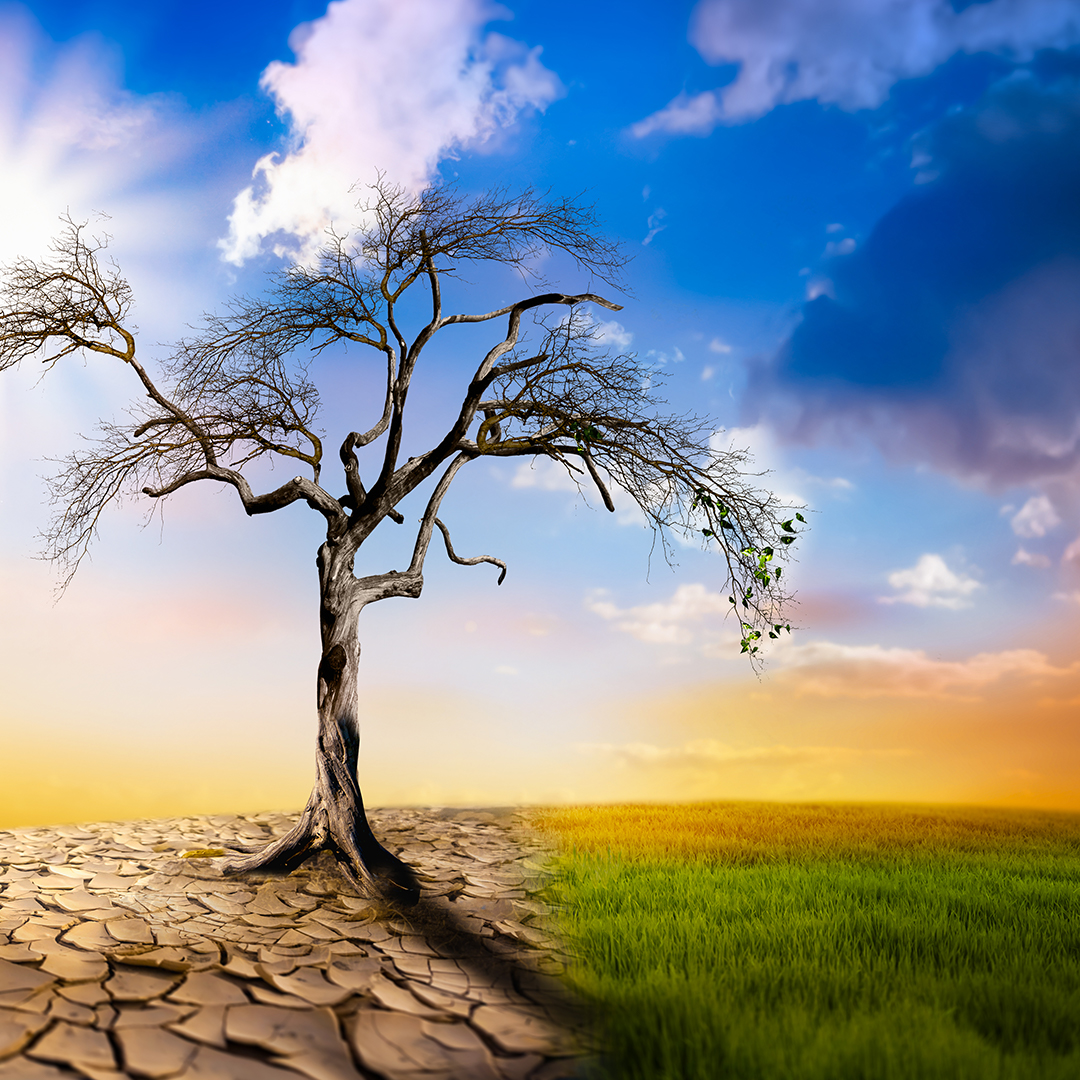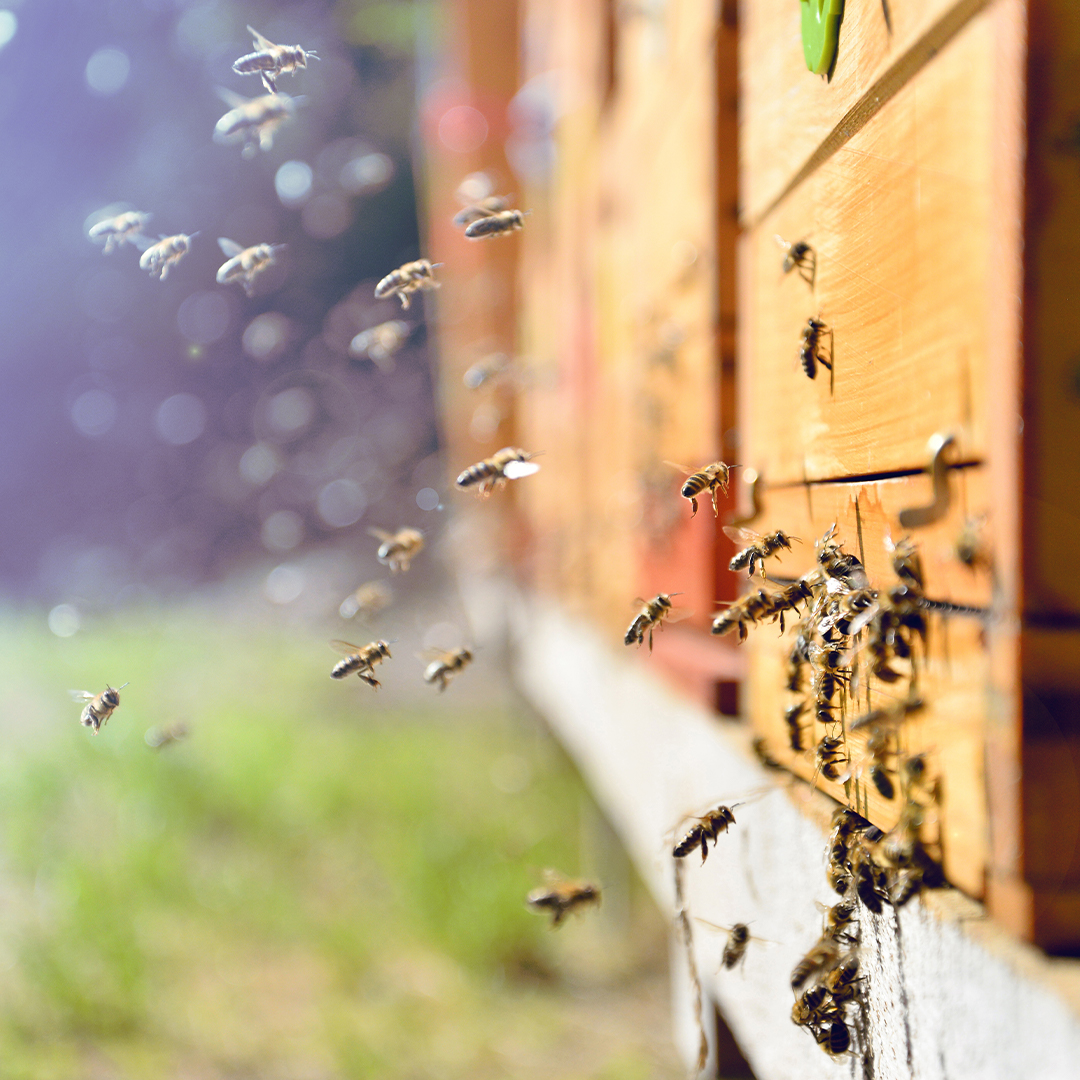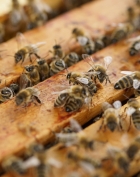Importance of Pollinators
1 May 2021
As outlined in the piece on biodiversity and sustainability our environment including ecology are very complex and intertwined after millions of years of living together. This is process is now under danger from our affect on the planet in a variety of means, from emitting too many gases that should be locked up for thousands of years to devastating our ecology with us removing habitat as well as encouraging dominant species.
Sadly honey bees kept by beekeepers have come into similar criticism due to ‘flooding’ areas with the honey bee which may affect other wild pollinators.
We must remember the importance of pollinators and how they affect everything around us. We must also remember that wild pollinators have reduced dramatically as well as honey bees. Sadly, as beekeepers we can support honey bees only as, after all, it what provides food for our tables and funding for the infrastructure and, when needed, treatments to help keep them alive and healthy as they provide an excess of honey far beyond their needs.
But even with our intervention bee numbers are nowhere near what they were even 50 years ago. And they have been declining since the early 1900’s. I do not think what we do as beekeepers now is detrimental to the environment but is a POSITIVE EFFECT. We are not after praise, but we do need to put it into context.

As an ethical producer of raw Welsh Honey it is serious to us. Most plants out there, for food or not, rely on seeds to germinate the next generation. This is important ecologically as this development of evolution has been key to everything surviving on this planet. As some of our banners say, THERE IS NO PLANT B…. unless Elon Musk and Jeff Bezos decides to transport a huge population to Proxima B or Alpha Centauri A or B (according to academics may be the location of the closest habitable planet to us) is over 4 light year away. Even at a million miles per hour it would take us 26,837 years to get there, so 894 generations or more (for context going back in time from now that’s before the last ice age when most of the UK was covered in ice sheets!) I think most people can only think of their family tree going back some 6 generations with help of family records. We are here to stay, certainly for the next couple of hundred years at least. So lets try and fix the problems we are heading into rather than be led by selectively blind politicians when they should be as understanding as a very much informed young Swedish lady named Greta.
Pollination is therefore essential for continuing evolution of plants. And of course, this in turn will support so many other aspects of wildlife from insect to mammals (think mice etc, not just human). The loss of this habitat if not by man could come by a lack of pollination.
But the continuing of evolution in plants can also affect climate change in a positive way. Plants leaves, stems and roots all lock in CO2. Should these plants start to fail the affects of plants able to support the absorption of CO2 and giving out oxygen in return will reduce. I do not think we need to underestimate the importance of oxygen. The more CO2 in the air the more our climate gets affected, and therefore the whole circle of disaster continues, deeper.
The importance therefore cannot be understated. But we are trying to play our part. Hopefully you can support us too.
Rhodri

